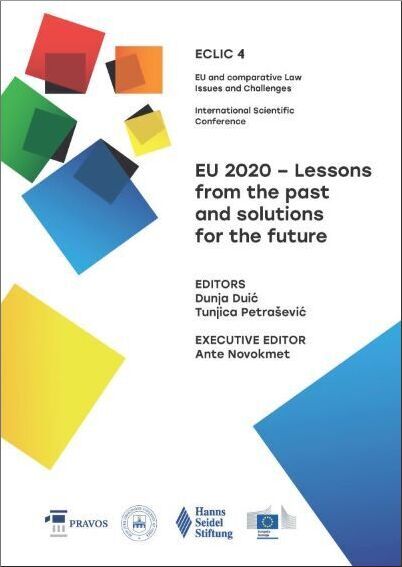ACTIONS FOR DAMAGES FOR BREACH OF EU COMPETITION LAW – EFFICIENT MARKET PROTECTION THROUGH PRIVATE ENFORCEMENT
WITH EMPHASIS ON NORTH MACEDONIA
DOI:
https://doi.org/10.25234/eclic/11931Abstract
Protection of the principle of free market competition is one of the fundamental principles on which the European Union was established, and as such it has been embedded in the Union’s founding treaties. Articles 101 and 102 of the Treaty of the Functioning of the EU explicitly prohibit agreements which prevent and restrict free market competition, and abuse of dominant market position. However, despite the fact that the principle of free market competition is one of the cornerstones of the EU, in practice there are numerous cases where companies disrupt the internal market through destructive conducts. Led by the desire for greater profit, very often companies try to circumvent the internal market rules, while remaining unsanctioned in the process. In these situations, beside inflicting harm on the market and on the economies of the Member-States as a whole, the offenders also inflict concrete damage on their competitors, and direct and indirect customers. In this regard, an important issue which arises is the question of indemnifying specific victims of such anticompetitive conducts. In the beginning, the European Commission through the Directorate General for Competition was the sole body which had jurisdiction in the enforcement of EU competition law. However, this approach proved highly inefficient as it was impossible to supervise the conducts on such a large scale, especially when taken into consideration the number of companies which operated on the market and the absence of clear division between internal market of the union and national market. It was even more difficult to provide compensation for all which were affected. This resulted in an initiative for decentralization of the enforcement of EU competition law, with great emphasis being placed on private enforcement. The aim of this article is to give insight of the methods for private enforcement of EU competition law. The paper firstly provides an overview of the existing legislation within the European Union concerning the enforcement of EU competition law. It then turns to the Directive 2014/104/EU, the so-called “damages directive”, which is considered the crucial instrument for providing more efficient protection of the internal market. The article examines the level of transposition of the Directive among Member-States, and the effects of its implementation. In addition, two important initiatives have arisen which will be also subject of analysis. The first initiative is for the increase of power of national competition authorities, which has resulted in the adoption of the Directive (EU) 2019/1. The second initiative is for enhanced level of protection of the consumers, through the introduction of collective redress mechanism in the form of class actions against the offending companies. This initiative has resulted in proposal for a directive of the European Parliament and of the Council, which has been accepted by the European Parliament in 2019. In anticipation of the final text, the article examines the key points contained within the proposal. Finally, the article gives an insight into the current state of play of the national legislation of Republic of North Macedonia, and the level of harmonization with the EU acquis.
Downloads
Published
How to Cite
Issue
Section
License
Copyright (c) 2020 Ljuben Kocev

This work is licensed under a Creative Commons Attribution-NonCommercial 4.0 International License.
Authors retain the copyright on the papers published in the Journal, but grant the right of first publication to the Journal. Papers accepted for publication or already published in ECLIC of the Faculty of Law in Osijek may be published by the author(s) in other publications only with proper notice of its previous publication in ECLIC.


